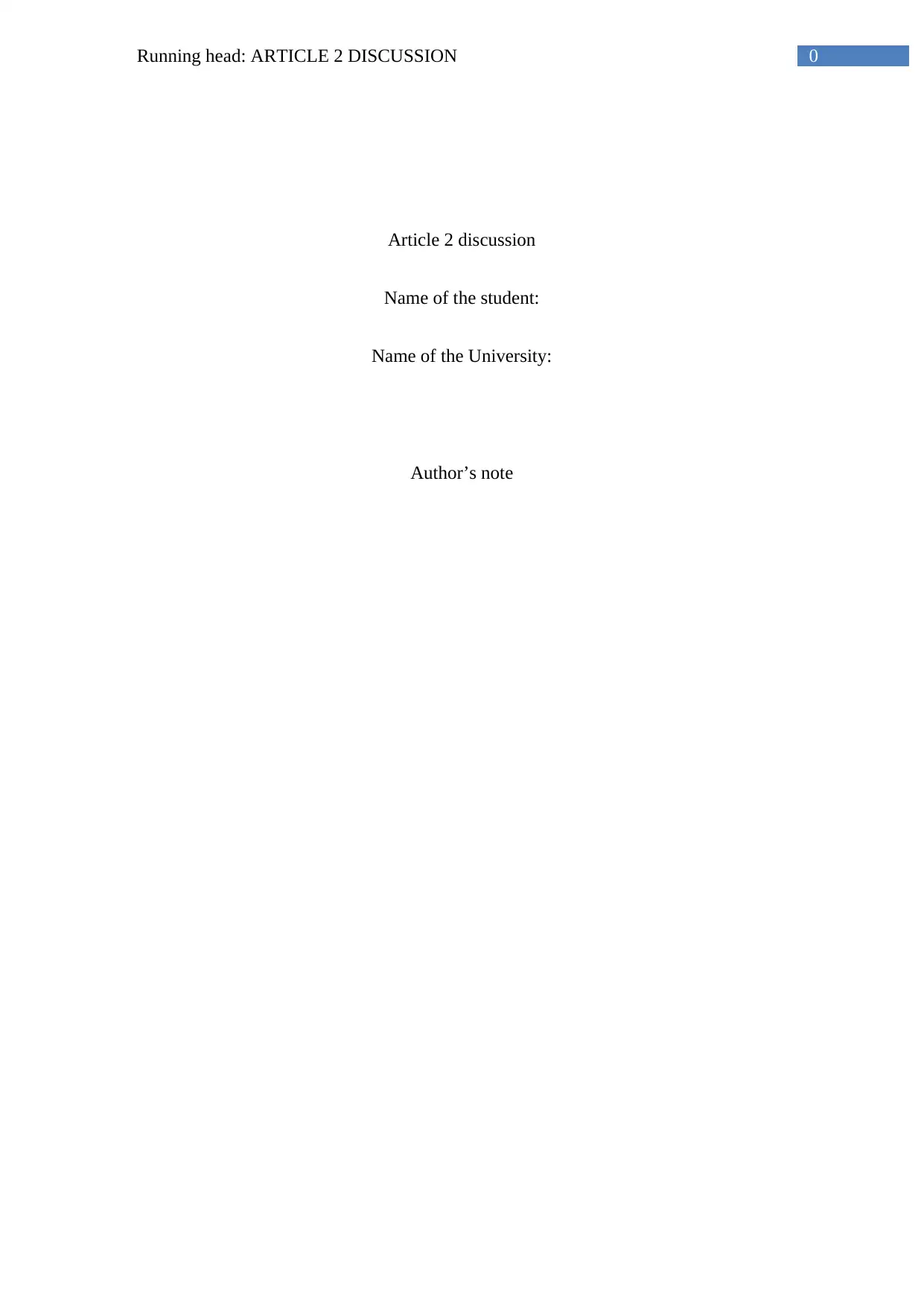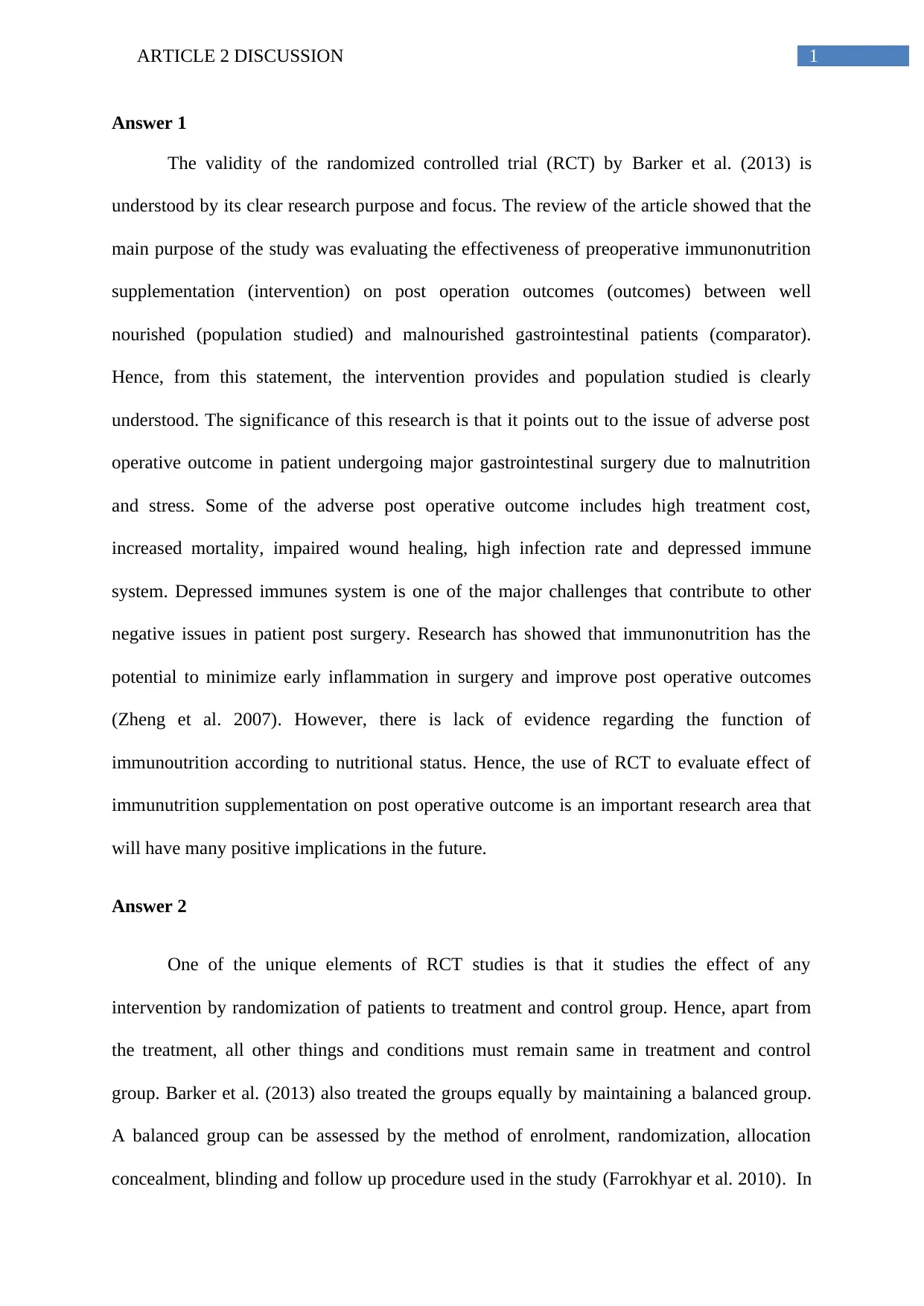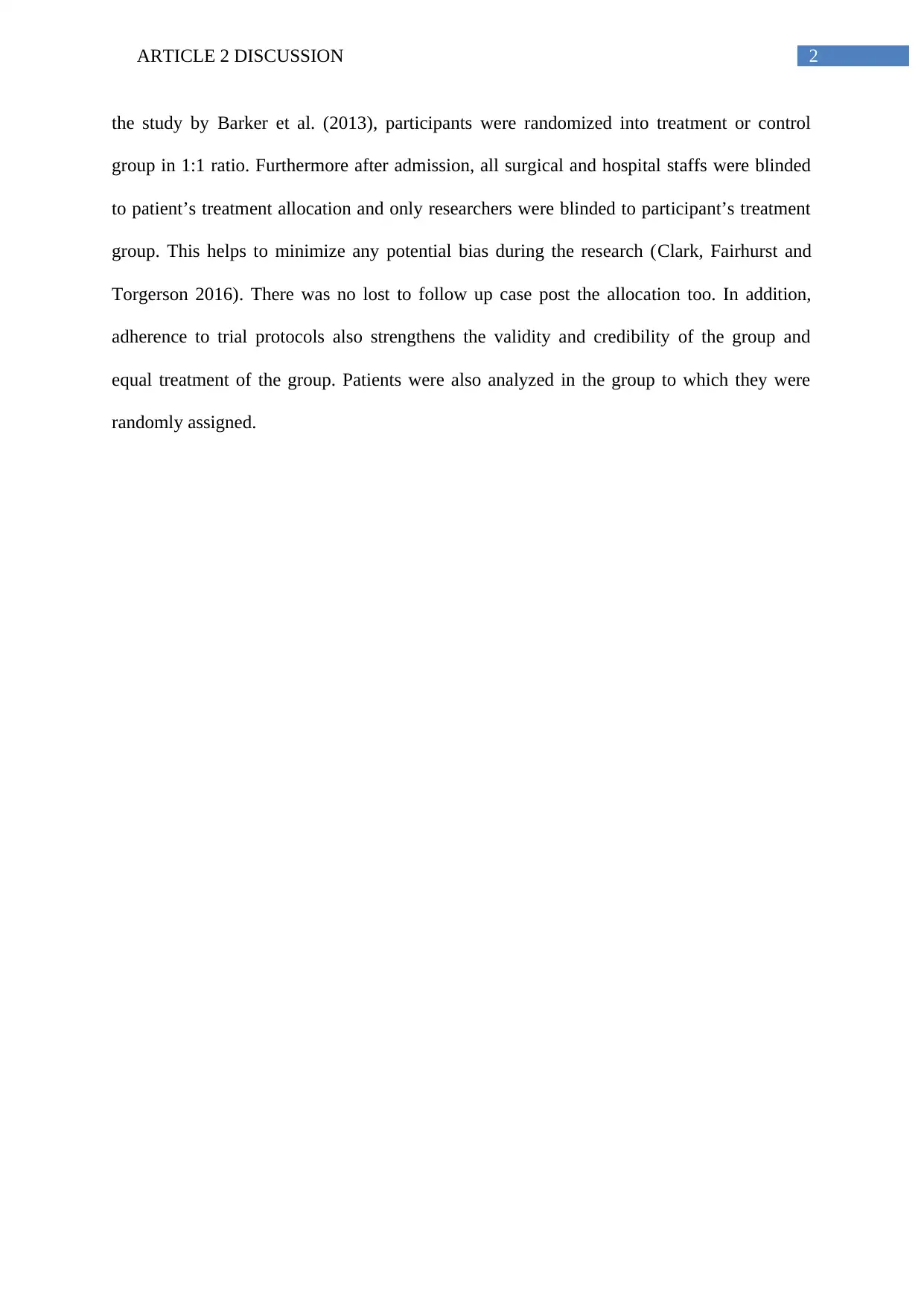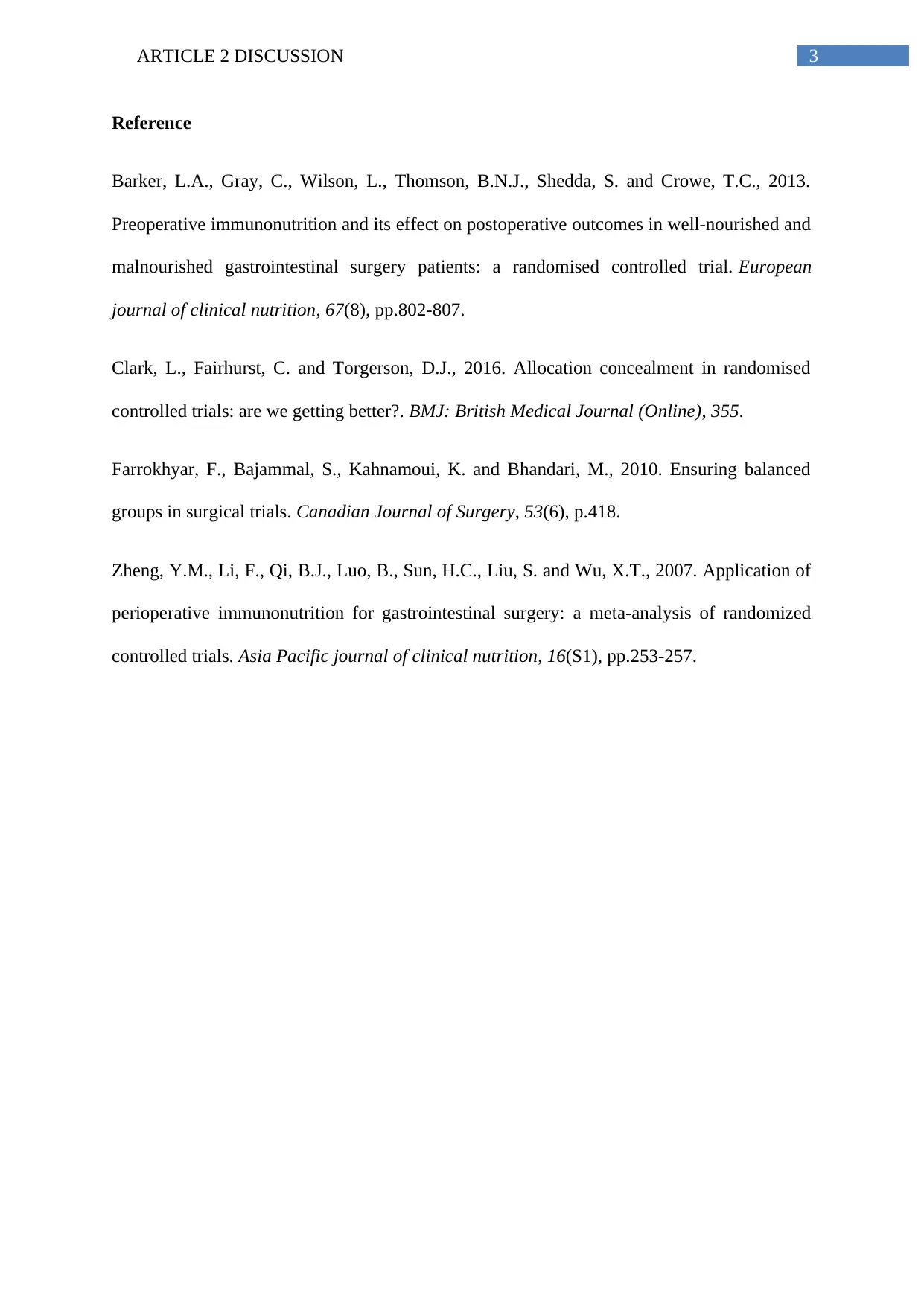Article 2 Discussion: Preoperative Immunonutrition in Surgery
VerifiedAdded on 2020/04/15
|4
|691
|137
Discussion Board Post
AI Summary
The assignment discusses a discussion board post centered around the study by Barker et al., which evaluates the effect of preoperative immunonutrition on post-operative outcomes in well-nourished and malnourished patients undergoing major gastrointestinal surgery. The research highlights the challenges posed by adverse outcomes such as high treatment costs, increased mortality rates, impaired wound healing, and a depressed immune system following surgery due to malnutrition and stress. Immunonutrition is identified as having potential benefits for reducing early inflammation and improving recovery post-surgery; however, evidence regarding its efficacy based on nutritional status was previously lacking. The study employs a randomized controlled trial (RCT) method, randomly assigning patients to treatment or control groups in a 1:1 ratio while ensuring blinding among surgical staff, with researchers being the only ones aware of group allocations. This approach aims to minimize bias and strengthen the validity of the results. The paper underscores the importance of balanced group enrollment, randomization, allocation concealment, and strict adherence to trial protocols as essential for credible research outcomes in assessing immunonutrition's role in surgical recovery.
1 out of 4











![[object Object]](/_next/static/media/star-bottom.7253800d.svg)